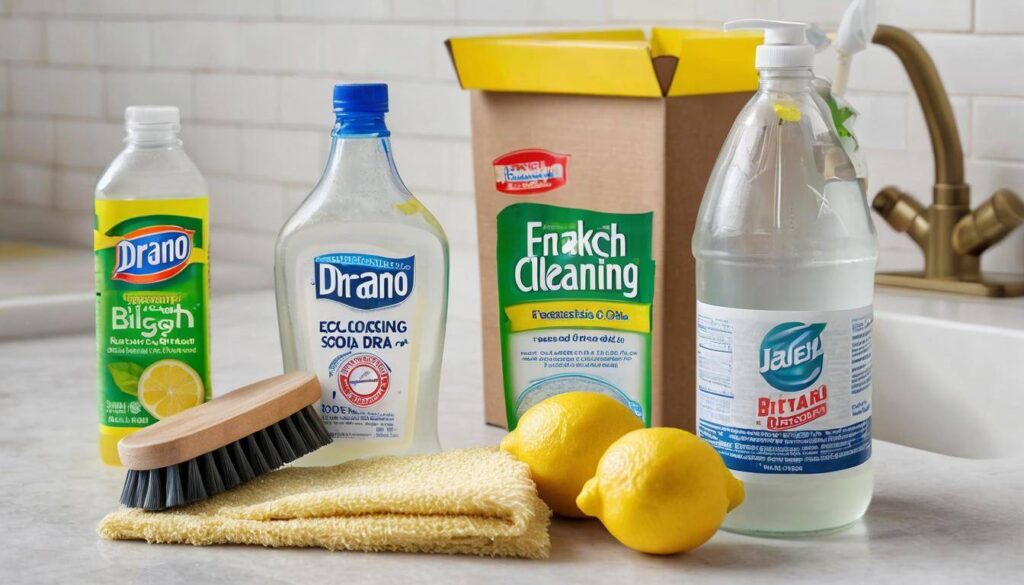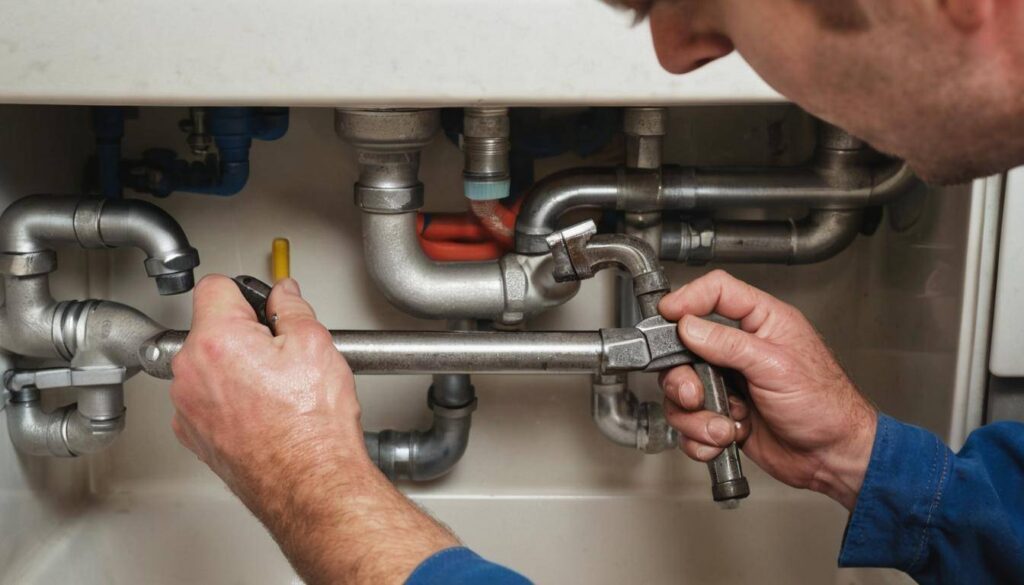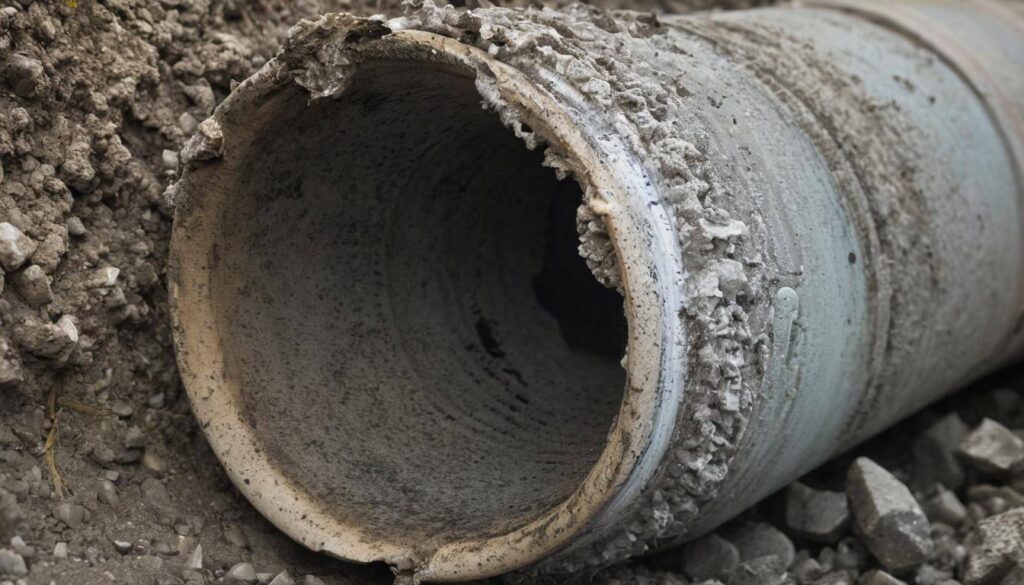Cost Comparison: Tankless vs. Traditional Water Heaters – Which is More Cost-Efficient?
A tankless water heater generally costs more initially than a traditional heater does. This is due to the advanced technology that makes it heat up water only when needed, saving energy in the process. However, it makes up for the higher upfront cost by being more energy-efficient, leading to lower energy bills over time and extending its lifespan for lasting use. Despite this, there are households where a traditional water heater might be more suitable, depending on the specific needs of the residents. Let’s now examine how these two types of heaters differ in their installation requirements.
When comparing the cost of tankless vs. traditional water heaters, it’s important to consider initial purchase price, installation costs, energy efficiency, and long-term operational expenses. While tankless water heaters may have a higher upfront cost, they can result in lower utility bills over time due to their energy-efficient operation and longer lifespan.
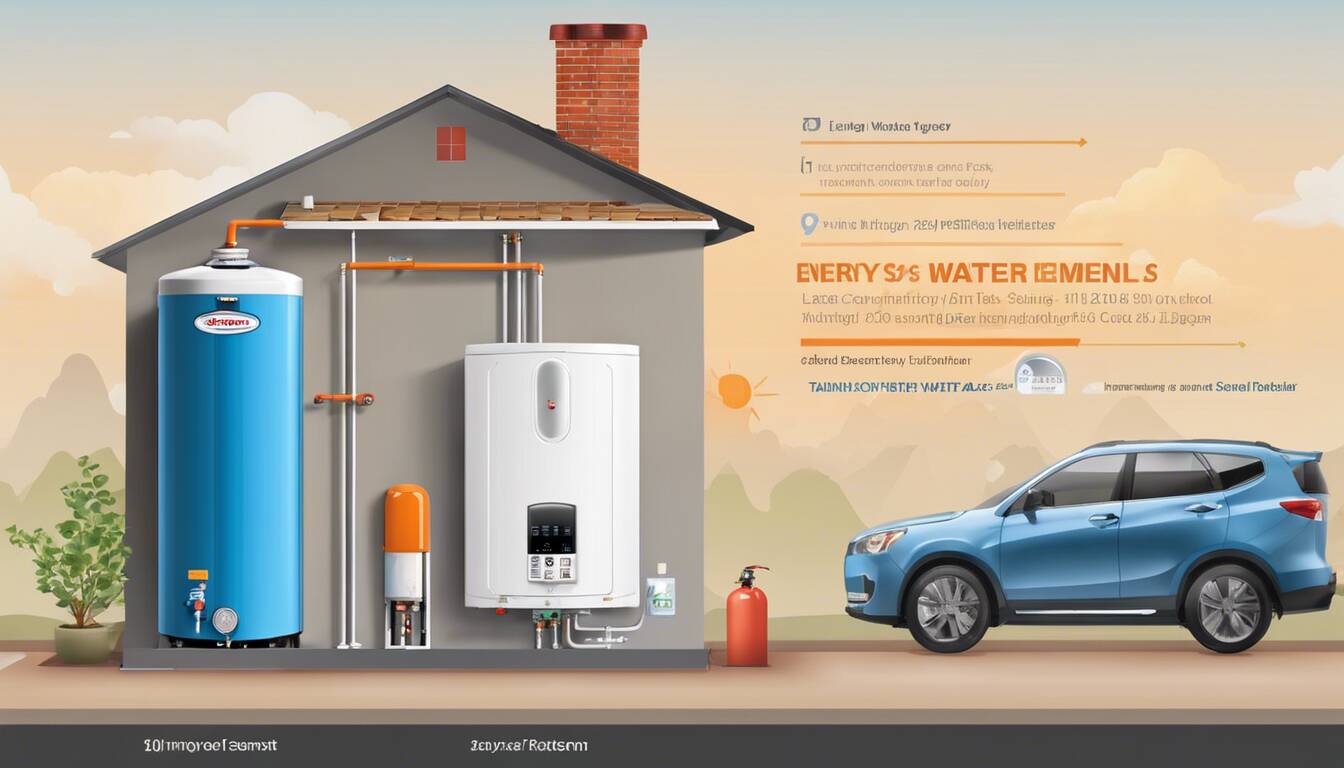
Cost Comparison: Tankless vs. Traditional Water Heaters
Deciding between a tankless water heater and a traditional one is akin to choosing between two paths—they both lead to hot water, but they come with their own sets of advantages and disadvantages. Let’s delve into the specifics:
One of the most significant differences between these two types of water heaters is the cost, which isn’t solely about the price tag at the store. When examining the big picture, several cost-related aspects come into play.
Let’s start with the initial cost. Traditional water heaters are generally more cost-effective to purchase and install. They have been around for a long time, and most homes are already set up to accommodate them without requiring any substantial modifications. Conversely, tankless water heaters demand a larger upfront investment. They necessitate special ventilation and gas lines for optimal functionality, thereby escalating installation expenses.
However, delving deeper reveals some intriguing aspects regarding energy efficiency.
Tankless water heaters tend to be more energy-efficient than traditional models. They only heat water when it’s needed, thus not expending energy to keep a large tank of water hot all day. This can lead to considerable savings on your energy bills over time. On the contrary, traditional water heaters consistently keep a significant amount of water heated up, regardless of its usage, leading to higher energy consumption.
Consider this scenario: taking a shower late at night while everyone else is asleep—the tankless heater only kicks in when you turn on the faucet, whereas the traditional heater has been heating up that water all throughout the night without anyone using it.
Another crucial aspect to consider is maintenance costs and longevity. Tankless water heaters typically incur lower maintenance expenses due to having fewer parts that can wear out compared to conventional water heaters. Furthermore, they tend to have a longer lifespan than traditional ones, potentially offsetting the higher initial cost.
So, as you see, there is more to consider than just the purchase price when deciding between tankless and traditional water heaters. From installation requirements to energy efficiency and maintenance costs, each factor plays an integral role in making an informed decision based on your unique needs and priorities.
In this comparison of initial costs and long-term benefits, we’ve laid out an impartial scrutiny of factors vital in selecting the ideal solution for your home’s hot water needs.
Initial Cost and Installation Differences
The first thing that comes to mind when contemplating water heaters is usually the initial cost. Traditional water heaters typically have a lower upfront cost compared to tankless units. This is an important factor for anyone considering a new system. The reason for this cost difference is straightforward. A basic storage water heater can cost between $300 to $1,500, notably less than the slightly higher outlay required for a tankless water heater, ranging from $1,000 to $3,000 or more.
This price variation might cause a momentary pause. “Why is there such a big price difference between the two?“, you might wonder. The answer lies in the way these two types of water heaters operate. Traditional models store and constantly heat water in their tank, while tankless models heat the water only when needed. This fundamental difference explains why tankless water heaters are initially more expensive – they require more advanced technology and construction.
Let’s put that into perspective: Think of it like buying a regular light bulb versus an LED one. The LED light bulb, while more expensive initially, will save you money in the long run due to being more energy-efficient.
But don’t let this initial difference in cost steer you towards a decision prematurely. There’s still the matter of installation to consider.
Tankless water heaters usually require professional installation due to their complexity, impacting the overall installation cost. Unlike traditional water heaters, which can be relatively easy to install, tankless units require specialized attention during installation because of the need for both electrical and plumbing expertise.
Moreover, it’s not just about hiring a professional; the existing infrastructure of your home plays a significant role in determining the total expenses associated with installing either type of water heater. For example, if your home is already set up for a traditional storage water heater and you wish to switch to a tankless unit, there may be additional costs involved in adapting your home’s infrastructure to accommodate the change.
Imagine it’s like getting a new smart device that requires specific adapters – sometimes adapting means additional costs!
Furthermore, the fuel type used in your home can also affect the expenses associated with installing either type of water heater. Some homes might need extra adjustments made for gas supply and ventilation when switching over to a tankless unit.
Considering all these factors highlights how initial costs and installation specifics are complex matters that could benefit from careful evaluation based on each individual household’s unique circumstances.
As we shift our focus towards efficiency, energy savings, and lifespan considerations, it becomes apparent that choosing between these two types of water heaters involves a multitude of factors.
Efficiency, Energy Savings, and Lifespan
When it comes to efficiency, both tankless and traditional water heaters operate differently. Tankless water heaters heat water only when it is needed, eliminating standby energy losses. This means that energy isn’t being used to keep a large tank of water hot all the time, leading to significant energy savings over time. On the other hand, traditional water heaters constantly draw energy to maintain the temperature of the water in the tank so that it’s ready whenever you need it.
To put this in perspective, a tankless water heater is like using a single-serve coffee maker—you heat up exactly what you need when you need it. In contrast, a traditional water heater is like leaving a big pot of coffee constantly warming on the stove. Even if no one’s drinking, it’s still using energy to stay hot.
Energy Savings
This difference in heating approach translates into tangible energy savings on your utility bills. Since tankless units are more efficient in heating water on demand, they can save homeowners anywhere from 24% to 34% on their energy bills compared to traditional water heaters. These savings can add up significantly over the years and help offset the higher upfront cost of a tankless unit.
For instance, let’s say a household goes through 41 gallons of hot water per day. With a tankless heater operating at 82% efficiency and a fuel price of $1 per therm (100,000 BTUs), the annual operating cost would be around $227. Meanwhile, a traditional storage water heater with an annual operating efficiency of around 80% would cost approximately $280 per year to operate—resulting in an annual saving of about $53 for every $1 spent on heating water.
Lifespan
In addition to energy efficiency, tankless water heaters also offer a longer lifespan than traditional units. A tankless unit typically lasts about 20 years, while traditional systems have a lifespan of 10-15 years on average.
Thinking about it like cars: it’s just like comparing a reliable sedan that you know will last for years versus a smaller car that might wear out and need replacing sooner.
Considering this longer lifespan, the higher initial cost of tankless water heaters can be justified by the extended period of service they provide. This means that while you may pay more upfront for a tankless water heater, the long-term savings in terms of reduced energy costs and fewer replacements make them an economically sound choice for many homeowners.
So when it comes to efficiency, energy savings, and lifespan, tankless water heaters come out ahead and can provide long-term benefits in terms of cost savings and reliability compared to traditional models.#
Assessing Space and Size Factors
Whether you live in a spacious suburban home or a cozy city apartment, the amount of available space is crucial when deciding between a tankless and traditional water heater. Tankless water heaters are renowned for their compact design, making them ideal for homes with limited utility space. Their small size offers flexibility during installation, allowing placement in smaller, unconventional spots. This can be a game-changer for homeowners needing to maximize every square inch of living space.
In contrast, traditional water heaters with storage tanks require significantly more space. The large, bulky tanks take up valuable real estate in basements, utility closets, or any designated area where they are installed. For homeowners with limited space, this can be a major drawback. With a tankless water heater, you can regain that lost space and have more freedom in arranging your home’s layout.
Imagine having the freedom to convert that cramped utility closet into a functional pantry or an additional storage area. It’s all made possible by the compact nature of tankless water heaters.
For those living in apartments or condominiums where every square foot matters, the space-saving advantage of tankless water heaters can’t be overstated. They provide an efficient hot water solution without sacrificing valuable living space.
So, as you contemplate which type of water heater to invest in, it’s worth considering how the space-saving aspect of a tankless system aligns with the layout and needs of your home. This also opens up exciting possibilities for home renovations or expansions by reclaiming the space that would otherwise be occupied by a traditional water heater.
The difference in size and spatial requirements between the two types of water heaters can have a significant impact on your overall living experience. Let’s explore another key factor in the comparison of tankless vs. traditional water heaters—installation and maintenance costs.
The Long-term Cost of Maintenance
When considering the long-term cost of maintaining water heaters, homeowners have a lot to think about. Traditional water heaters often require regular maintenance due to sediment buildup in the tank. Over time, sediments accumulate and affect the heater’s efficiency, leading to increased energy consumption and potentially reducing its lifespan. This extra maintenance can translate into higher costs over the life of the unit.
On the other hand, tankless water heaters are generally less susceptible to sediment buildup due to their on-demand heating mechanism. Therefore, they typically have lower maintenance costs. While tankless units do require periodic flushing to prevent mineral buildup in the heat exchanger, the overall maintenance is usually less frequent and less intensive compared to traditional water heaters.
It’s important to note that maintenance costs may vary based on factors such as the quality of water in your area and the usage patterns of the water heater. For instance, areas with hard water might require more frequent maintenance for both traditional and tankless water heaters due to mineral deposits.
For example, imagine living in an area where hard water is prevalent; this high mineral content in the water supply can lead to faster mineral buildup in the heat exchanger of a tankless water heater, necessitating more frequent flushing. However, even with this consideration, tankless water heaters still tend to have lower long-term maintenance costs compared to their traditional counterparts.
Now that we’ve discussed the long-term cost of maintenance for both types of water heaters, let’s dive deeper into the operational efficiency and energy consumption of each system, allowing you to make a fully informed decision about which option is more cost-efficient in the long run.
Identifying Your Need: Unlimited Water Supply or Cylinder Lifespan
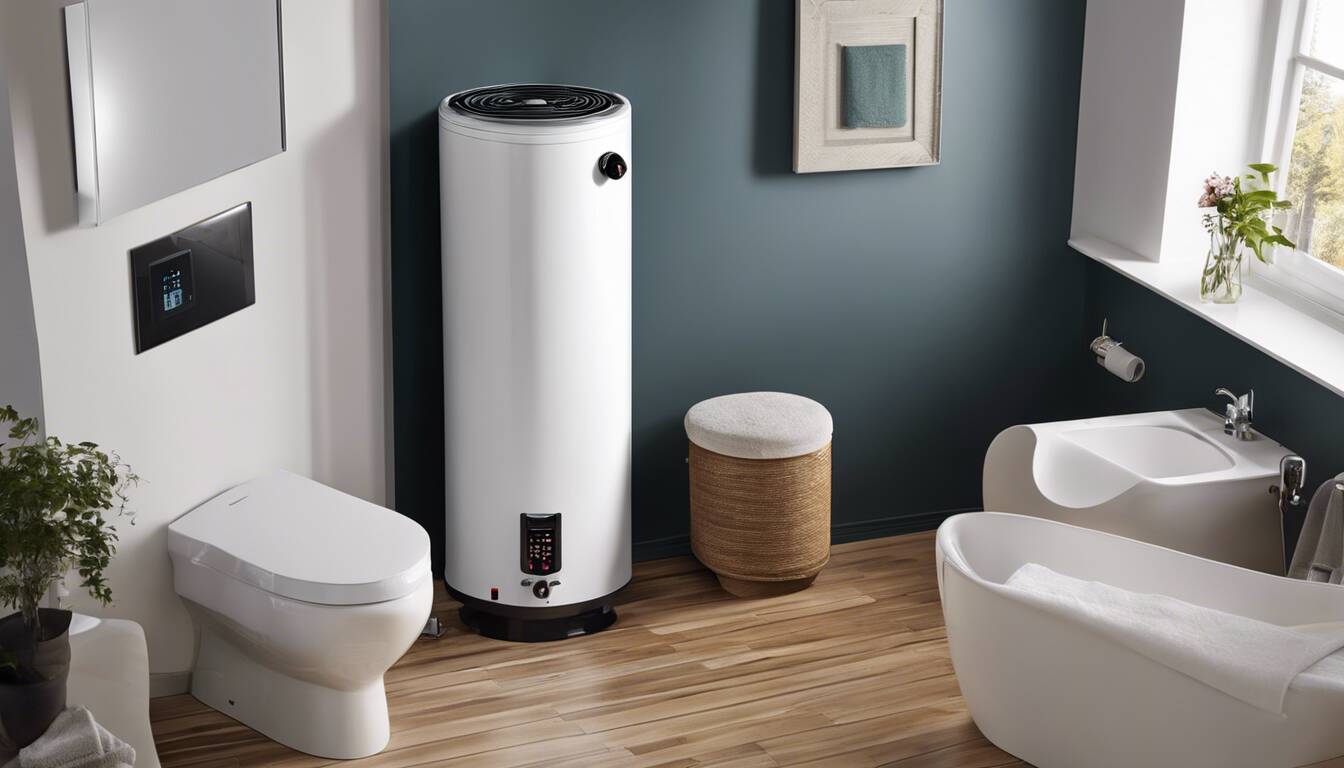
When it comes to selecting the right water heater for your home, understanding your household’s hot water usage patterns and the specific benefits offered by different types of water heaters is crucial. Let’s start by breaking down the key factors to consider when deciding between a tankless and traditional water heater.
Unlimited Water Supply
If your household requires a constant and uninterrupted supply of hot water, especially during peak usage times such as mornings or evenings, then a tankless water heater with its on-demand heating capability is an advantageous option for you. Unlike traditional water heaters with limited capacity, a tankless system provides hot water instantly and continuously, ensuring that you never run out of hot water, even during heavy usage periods. This feature can be particularly beneficial for larger families or households with multiple bathrooms where hot water demand is high.
Imagine it’s a cold winter morning, and everyone in your family needs to shower before heading out for their day. With a tankless water heater, each person can enjoy a warm shower without worrying about depleting the hot water supply. This eliminates the frustration of scheduling showers around periods when the traditional water heater’s supply may have run out due to previous use.
Cylinder Lifespan
On the other hand, when considering the long-term investment and sustainability of your water heater, it’s essential to take into account the lifespan of the equipment. Tankless water heaters are known for their longer lifespan compared to traditional storage tank heaters. While traditional models typically last around 10-15 years, tankless units can last for 20 years or more with regular maintenance and care. This longer lifespan can result in cost savings over time as you won’t need to replace your water heater as frequently. It also reduces the environmental impact by minimizing the disposal of old units.
This aspect becomes especially crucial when making decisions about long-term home improvements or renovations. Thinking ahead about how long you plan to stay in your current residence can help guide you towards selecting the most cost-efficient and sustainable option for your specific needs.
By carefully weighing these factors and understanding how they align with your household’s hot water consumption patterns, you can make an informed decision that ensures optimal hot water availability tailored to your unique requirements.
In this detailed analysis of hot water systems, we’ve considered various aspects that influence the selection of a suitable water heating solution. Now, let’s turn our attention to evaluating the short-term expenses against potential long-term savings when comparing different types of water heaters in “Overall Costing: Upfront investment vs. Long-term savings”.
Overall Costing: Upfront investment vs. Long-term savings
When deciding between a tankless and traditional water heater, considering the overall cost is crucial. It’s not just about the initial investment; rather, it involves looking at the long-term savings potential, energy efficiency, potential rebates, and the lifespan of the water heater itself.
Let’s break down what this means in practical terms. Yes, tankless water heaters generally come with a higher upfront cost compared to traditional water heaters. However, their energy-saving benefits over time can lead to significant long-term savings on energy bills. With a traditional water heater, you might have lower upfront costs, but they tend to be less energy-efficient, resulting in higher energy bills in the long run.
The efficiency of tankless water heaters lies in their ability to provide hot water instantaneously, unlike traditional water heaters which constantly heat and store water in a tank. This means you’re only using energy to heat the water when you need it, as opposed to constantly keeping a large tank of water heated.
Consider this: a tankless water heater can be up to 34% more energy-efficient than a traditional one, according to the U.S. Department of Energy. This directly translates into real savings on your energy bills over the years.
Moreover, rebates for energy-efficient upgrades can make a big difference too. Some local utility companies and government agencies offer rebates for installing appliances like tankless water heaters. These rebates can help offset the initial investment cost and contribute to long-term savings.
Given all these aspects go into making an informed decision about your household’s needs and budget when choosing between a tankless or traditional water heater, obtaining professional advice is valuable. Consulting a trusted local plumbing service like My Calgary Plumber can provide specialized insights into your home’s specific requirements and help ensure a seamless and reliable setup process.
When it comes to choosing between different types of water heaters, focusing on long-term savings and efficiency is key. Professional guidance can make this decision easier and ensure that your home benefits from a reliable and cost-effective solution.

